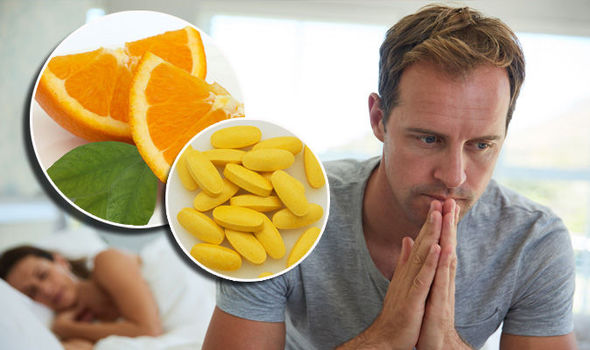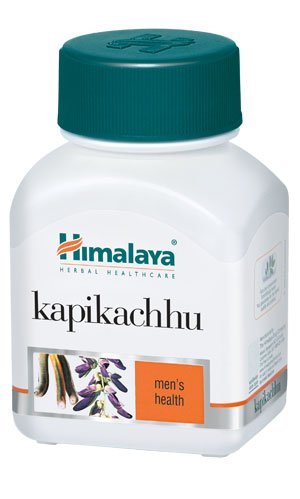Do certain Vitamins affect a person’s Sexual function?
The term “erectile dysfunction” (ED) refers to a symptom, not a medical disease. Despite the fact that there are numerous potential reasons of ED, the most prevalent ones are illnesses like diabetes, sleep issues, and heart disease as well as lifestyle choices like smoking and alcohol abuse.
Some of the causes of ED, like ageing, are unavoidable. A healthy lifestyle, according to study, can reduce the risk of ED. For instance, ED rates have been linked to lower levels of physical activity and keeping a healthy body weight. 322 million males worldwide are anticipated to experience erectile dysfunction by 2025.

There is currently relatively little study on how vitamins and vitamin deficits affect sexual health. However, as vitamins are organic substances that are necessary for healthy development and for maintaining biological processes, it follows that a person’s vitamin levels may also have an impact on their sexual function. What is now known about vitamins and their possible effect on sexual function is as follows.
Vitamin D
Perhaps the most thoroughly studied vitamin in terms of sexual health is vitamin D, which is created by exposure to sunlight and is present in fatty fish and fortified milk. Vitamin D seems to assist healthy endothelium function and testosterone synthesis in men. (The endothelium is a thin layer of cells that line the inside of the heart and blood vessels and is essential for managing blood clots, relaxing and constricting blood vessels, and aiding in the body’s immune response.)
Researchers have discovered that vitamin D decreases inflammatory disorders that might harm a person’s vascular function by stimulating nitric oxide and antioxidants in the endothelium. In turn, this might enhance vascular health, which is crucial for erectile performance.
Studies in the past have discovered links between adequate vitamin D levels and enhanced male sexual function. Males who were vitamin D deficient had significantly poorer International Index of Erectile Function (IIEF) ratings than men in the control group, according to one such study.
It has been demonstrated that vitamin D benefits females by promoting oestrogen release and the maturation of vaginal cells. When it comes to female sexual function, oestrogen is a crucial hormone because it supports healthy vaginal tissues and adequate lubrication, which makes sex more pleasurable and pleasant for women. In reality, when compared to a placebo, intravaginal vitamin D suppositories have demonstrated positive outcomes in reducing the symptoms of painful sex and vaginal atrophy in postmenopausal women.
Vitamin C
Vitamin C has been demonstrated to be protective against endothelial dysfunction, much like vitamin D. Nitric oxide availability is aided by vitamin C, a potent antioxidant, which also improves endothelial and vascular function, all of which are necessary for healthy sexual performance. Oranges, lemons, and tomatoes are examples of citrus fruits that contain this vitamin.
Vitamin E
Leydig cells, the main source of testosterone in males, appear to be correlated with vitamin E levels in animal studies. Compared to healthy animals, those with vitamin E deficiency had fewer Leydig cells, smaller testicles, and more testicular injury. While it seems that vitamin E may support the synthesis of testosterone and, consequently, sexual function, it is crucial to ascertain whether these results apply to people. Nuts, seeds, avocados, mangos, and plant-based oils all contain vitamin E.
Vitamin B9 (Folate)
Dark green vegetables, beans, peanuts, complete grains, and peanut butter all contain folate. Similar to other vitamins, it supports normal endothelium function. Additionally, it is crucial for the metabolism of serotonin, which is crucial for controlling ejaculation. A 2014 Chinese study discovered that men’s premature ejaculation and erectile dysfunction were both correlated with folate insufficiency. However, more investigation is required to determine how this vitamin might affect human sexual functioning in general.
Conclusion
However, sexual health is made up of many distinct factors, such as neurological processes, vascular function, mental health, and even interpersonal dynamics. Vitamins may enhance good sexual functioning. Therefore, it is unrealistic to believe that taking a multivitamin will help with any sexual health issues. Nevertheless, these findings imply that eating a healthy, balanced diet and taking supplements to make up for any vitamin deficits you might have may be beneficial for your sexual health.
REFERENCES:
- https://www.smsna.org/patients/blog/do-certain-vitamins-affect-a-person-s-sexual-function
- https://pubmed.ncbi.nlm.nih.gov/33779240/
- https://www.healthline.com/health/erectile-dysfunction/ed-and-vitamins
- https://www.researchgate.net/publication/350466985_Effect_of_vitamins_on_sexual_function_A_systematic_review
- https://www.hindawi.com/journals/ije/2018/3720813/
For more details, kindly visit below.
